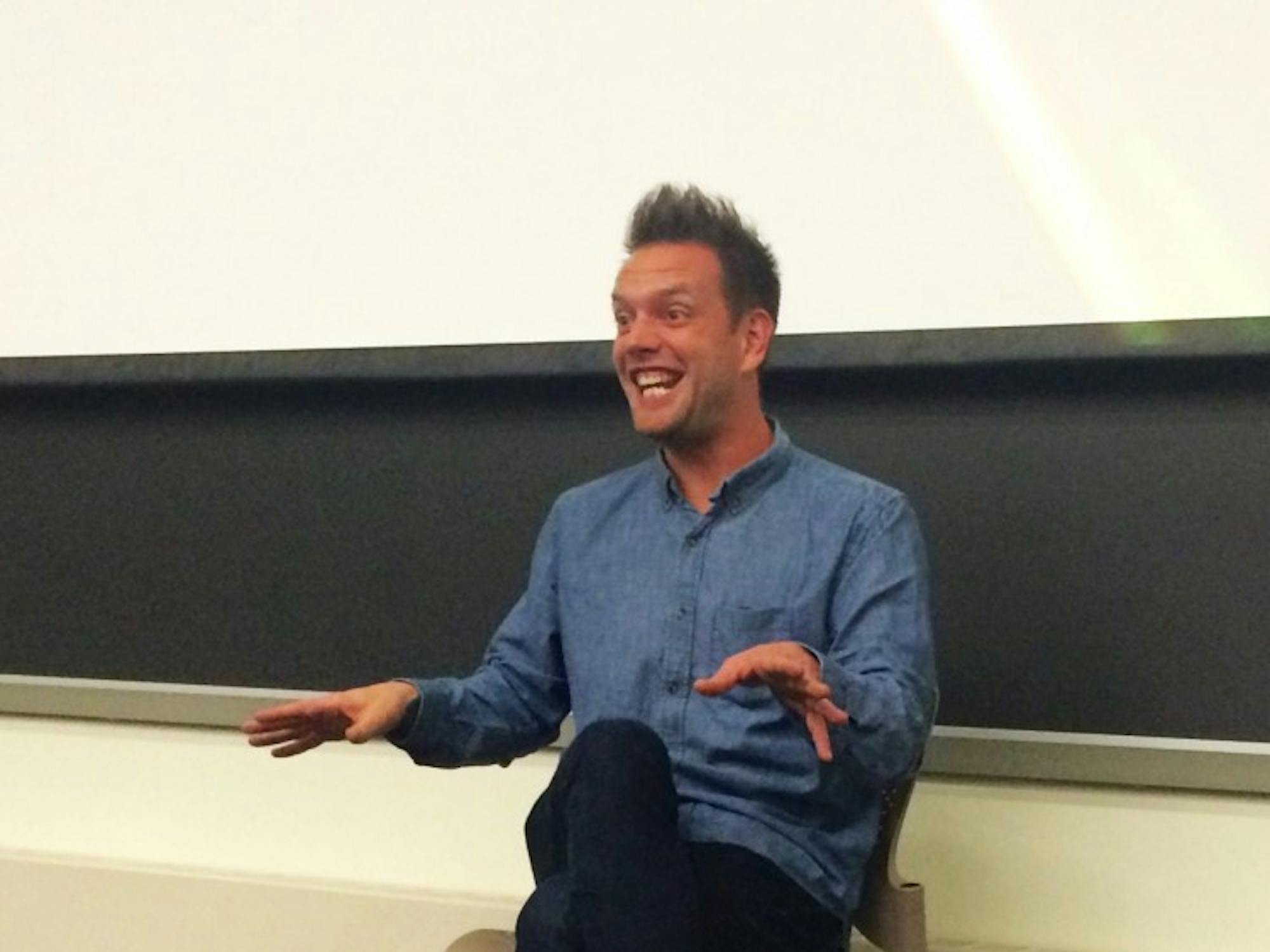Josh Rivedal, actor, author and motivational speaker, spoke to 70 students about mental health issues and performed his one-man show “Kicking My Blue Genes in the Butt” about recovering from clinical depression and suicidal thoughts in Pray-Harrold Thursday, March 3.
The one-man show was based on depression and his father’s suicide in 2009. Rivedal also spoke of his own depression, suicide attempt and loss of his grandfather, who also committed suicide. At the time of his father’s death, he was pursuing a career on Broadway.
Rivedal said that all college students could benefit from becoming more educated on mental illness.
“They need to hear about how to deal with their mental illness, to deal with emotions in productive ways, and manage themselves or a friend,” he said. “They should learn to reframe failure as a lesson on the way to success.”
Maya Rich, Director of EMU Social Justice and Event Organizer, said that the event can provide students with information to add to what they already know.
“Mental health and suicide prevention is a common theme,” she said. “People don’t always have the tools, or know of the resources to seek out on campus. I like how this event gives a really unique way to educate students about these issues.”
The event, sponsored by student Government and co-sponsored by the Office of the President and the EMU Stigma and Fear End Now suicide prevention program, featured appearances by Melissa Rosenblum, PhD, staff psychologist at EMU Counseling and Psychological Services and EMU Active Minds co-president Abby Anderson.
EMU Active Minds is an organization which aims to increase awareness about mental health on campus in order to reduce mental health stigma and encourage students to seek help. EMU’s SAFE Now suicide prevention program aims to decrease the negative stigma on campus and increase help seeking behavior related to mental illness.
Rivedal shared steps on how students can help themselves and others with mental illnesses and ways to identify symptoms. He also dispelled misconceptions about mental illness and shared statistics. A question and answer session immediately followed.
He said that over four thousand people between ages 15-24 die from suicide each year in the United States and it’s the second leading cause of death in that age bracket. Thirty times that number make suicide attempts.
Over 90 percent of people who die from suicide have at least one psychological illness such as bipolar disorder, clinical depression or post-traumatic stress disorder present at the time of death.
Some warning signs those who are experiencing mental illness might show are withdrawing from friends and family, feeling hopeless, talking about death, inability to sleep and physical and emotional pain. Rivedal encouraged students to get help from the National Suicide Prevention hotline or services on campus.
He said listen for clues when people are discussing their issues, don’t be judgmental and remind the person that they are important and matter.
Katherine Vallek, sophomore, was impressed with the different resources out there for those with mental health issues.
“Suicide is more prevalent than it seems, there are resources available for those who have mental health issues,” she said. “It’s important to learn that mental health is a problem for a lot of people.”
Kelsey Vargo, sophomore and psychology major, loved Rivedal’s one-man show and enjoyed learning how to help others in need.
“The show was very entertaining, thought provoking, and easy to become emotionally attached to,” she said. “It’s possible to help just by listening, some people need an intermediary individual to assist them in getting help and it’s totally valid and okay.”









